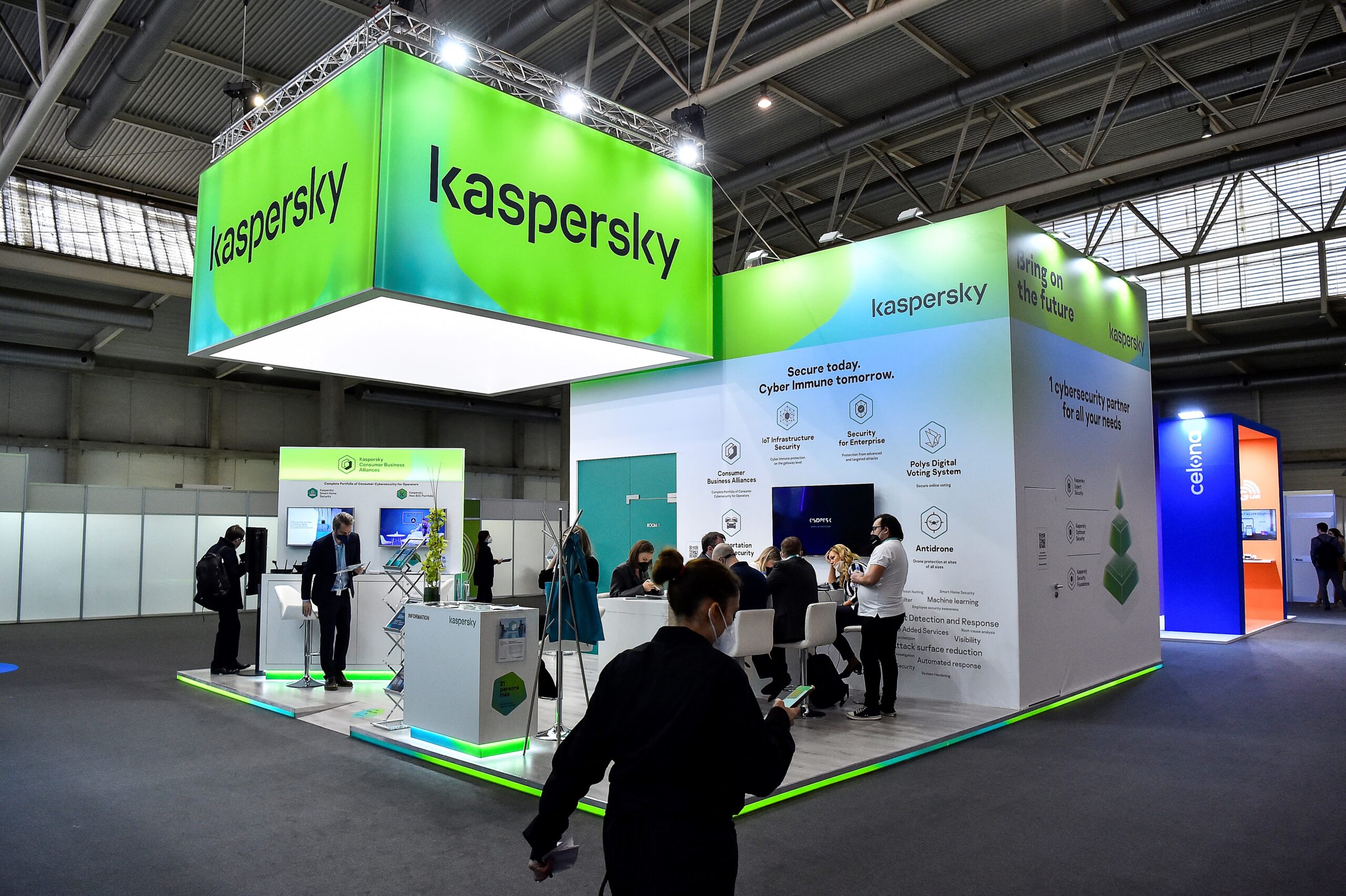Hone local cybersecurity talent, Kaspersky urges PH

Visitors sit at the stand of Russian antivirus software development company Kaspersky Lab on the opening day of the MWC (Mobile World Congress) in Barcelona on February 28, 2022. Organisers were hoping to return to a full-scale event after two years of disruption caused by the coronavirus pandemic, but they were forced to remove Russia’s dedicated pavilion following the invasion. Some Russian companies, however, were still participating in the event (Photo by Pau BARRENA / AFP)
With the proliferation of digital threats, companies must hone homegrown cybersecurity talents instead of hiring new employees to strengthen expertise and retain workforce, according to Kaspersky.
In a global survey conducted by Kaspersky, respondents raised the need for enterprises to sponsor additional training courses for cybersecurity to remain competitive in the market while building capacity.
“With a constantly evolving threat landscape, businesses should continually improve the skills of their cybersecurity personnel in order to be well prepared for sophisticated cyberattacks,” said Veniamin Levtsov, vice president of Kaspersky’s center of corporate business expertise.
He added “developing high-profile specialists within the company and building internal expertise can be an effective strategy for organizations that aim to retain existing employees and allow them to grow professionally.”
When conducting capacity-building programs, Kaspersky noted that practical use of training would help in the knowledge retention.
A number of cyberattacks can potentially target enterprises and disrupt their operations as a result.
An example is ransomware whereby hackers hold hostage an entity’s network system until a random is paid in return.
Organizations in the Philippines usually spend about ₱55 million or $1 million to resolve a single data breach and pay off random ro regain system access, according to an estimate by cybersecurity company Fortinet.
About 56 percent of the surveyed organizations in the Philippines said they saw two times increase in ransomware attacks last year compared to 2022, Fortinet said, noting more digital threats of the same kind are expected to trouble businesses this year.
Another common digital threat targeting enterprises is business email compromise, which is a form of cyberattack whereby hackers send emails embedded with suspicious links to business emails of company employees. INQ
